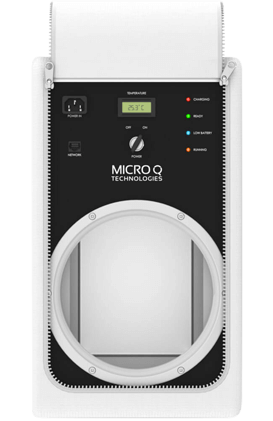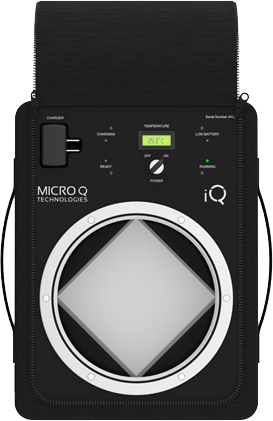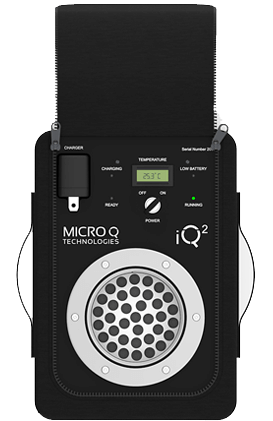VACCINE PORTABLE SHIPPING DEVICE
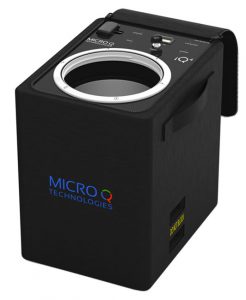 During this time of year, there is a lot of discussion about vaccines. Seasonal vaccines are incredibly important during this time of year as the flu tends to get passed around quite quickly. Also, there has been a lot of news recently about polio spreading in Syria. Without the polio vaccine, the world is at risk of polio spreading rapidly. GMANetwork.com discusses why it is important that everyone, in every part of the world, receives the polio vaccine, “Meanwhile, the WHO said that as of 2013, only three countries – Afghanistan, Nigeria and Pakistan – remain polio-endemic. “[But] as long as a single child remains infected, children in all countries are at risk of contracting polio. Failure to eradicate polio from these last remaining strongholds could result in as many as 200,000 new cases every year, within 10 years, all over the world,” the United Nations health agency said.” What is happening in Syria is startling and is all the more reason to ensure vaccines are transported safely all over the world. Many vaccines are temperature sensitive and need to have a certain temperature maintained at all times so that they remain effective and safe to use. When shipping any distance, and especially when shipping all over the world, vaccines can encounter a number of potential hazards. The CDC discusses the importance of maintaining the vaccine cold chain, “The majority of commonly recommended vaccines require storage temperatures of 35°F–46°F (2°C–8°C) and must not be exposed to freezing temperatures. Introduction of varicella vaccine in 1995 and of live attenuated influenza vaccine (LAIV) more recently increased the complexity of vaccine storage. Both varicella vaccine and LAIV must be stored in a continuously frozen state <5°F (–15°C) with no freeze-thaw cycles (Table 1). In recent years, instances of improper vaccine storage have been reported. An estimated 17%–37% of providers expose vaccines to improper storage temperatures, and refrigerator temperatures are more commonly kept too cold than too warm (2,3). Freezing temperatures can irreversibly reduce the potency of vaccines required to be stored at 35°F–46°F (2°C–8°C). Vaccine storage units must be selected carefully and used properly.”
During this time of year, there is a lot of discussion about vaccines. Seasonal vaccines are incredibly important during this time of year as the flu tends to get passed around quite quickly. Also, there has been a lot of news recently about polio spreading in Syria. Without the polio vaccine, the world is at risk of polio spreading rapidly. GMANetwork.com discusses why it is important that everyone, in every part of the world, receives the polio vaccine, “Meanwhile, the WHO said that as of 2013, only three countries – Afghanistan, Nigeria and Pakistan – remain polio-endemic. “[But] as long as a single child remains infected, children in all countries are at risk of contracting polio. Failure to eradicate polio from these last remaining strongholds could result in as many as 200,000 new cases every year, within 10 years, all over the world,” the United Nations health agency said.” What is happening in Syria is startling and is all the more reason to ensure vaccines are transported safely all over the world. Many vaccines are temperature sensitive and need to have a certain temperature maintained at all times so that they remain effective and safe to use. When shipping any distance, and especially when shipping all over the world, vaccines can encounter a number of potential hazards. The CDC discusses the importance of maintaining the vaccine cold chain, “The majority of commonly recommended vaccines require storage temperatures of 35°F–46°F (2°C–8°C) and must not be exposed to freezing temperatures. Introduction of varicella vaccine in 1995 and of live attenuated influenza vaccine (LAIV) more recently increased the complexity of vaccine storage. Both varicella vaccine and LAIV must be stored in a continuously frozen state <5°F (–15°C) with no freeze-thaw cycles (Table 1). In recent years, instances of improper vaccine storage have been reported. An estimated 17%–37% of providers expose vaccines to improper storage temperatures, and refrigerator temperatures are more commonly kept too cold than too warm (2,3). Freezing temperatures can irreversibly reduce the potency of vaccines required to be stored at 35°F–46°F (2°C–8°C). Vaccine storage units must be selected carefully and used properly.”
Benefits of Micro Q Technologies
- Active precision heating or cooling
- Temperature LCD display resolution = 0.1° C
- Temperature control range 0° C to 42° C
- Rechargeable battery with integrated power supply
- Ambient Temperature range -20° C to 50° C
- Temperature holding duration 24+ hours to 168+ hours
- Microprocessor controlled heat pump
- Tamper resistant key switch
- Temperature control resolution = 0.0625° C
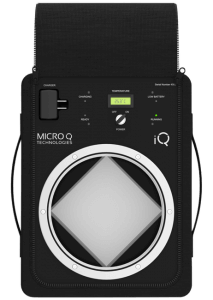 Additional Vaccine Portable Shipping Device Benefits
Additional Vaccine Portable Shipping Device Benefits
The ideal storage unit for transporting vaccines is the MicroQ iQ portable vaccine shipper. The iQ vaccine portable shipping device is capable of active heating and cooling throughout the duration of transportation. It is controlled by a microprocessor, making it able to adapt and adjust as needed to precisely maintain the programmed temperature, regardless of fluctuations in ambient conditions. It is lightweight yet incredibly durable. It can withstand any rough handling it may encounter during transport and can easily be shipped with couriers such as FedEx and UPS. Additionally, the device is reusable, which will produce significant savings on shipping costs. All that is needed is to recharge the device, reprogram it and send it along again. The MicroQ iQ portable vaccine shipping device will protect vaccines throughout the entire shipping process and ensure they arrive safe and ready to help protect people’s health.

